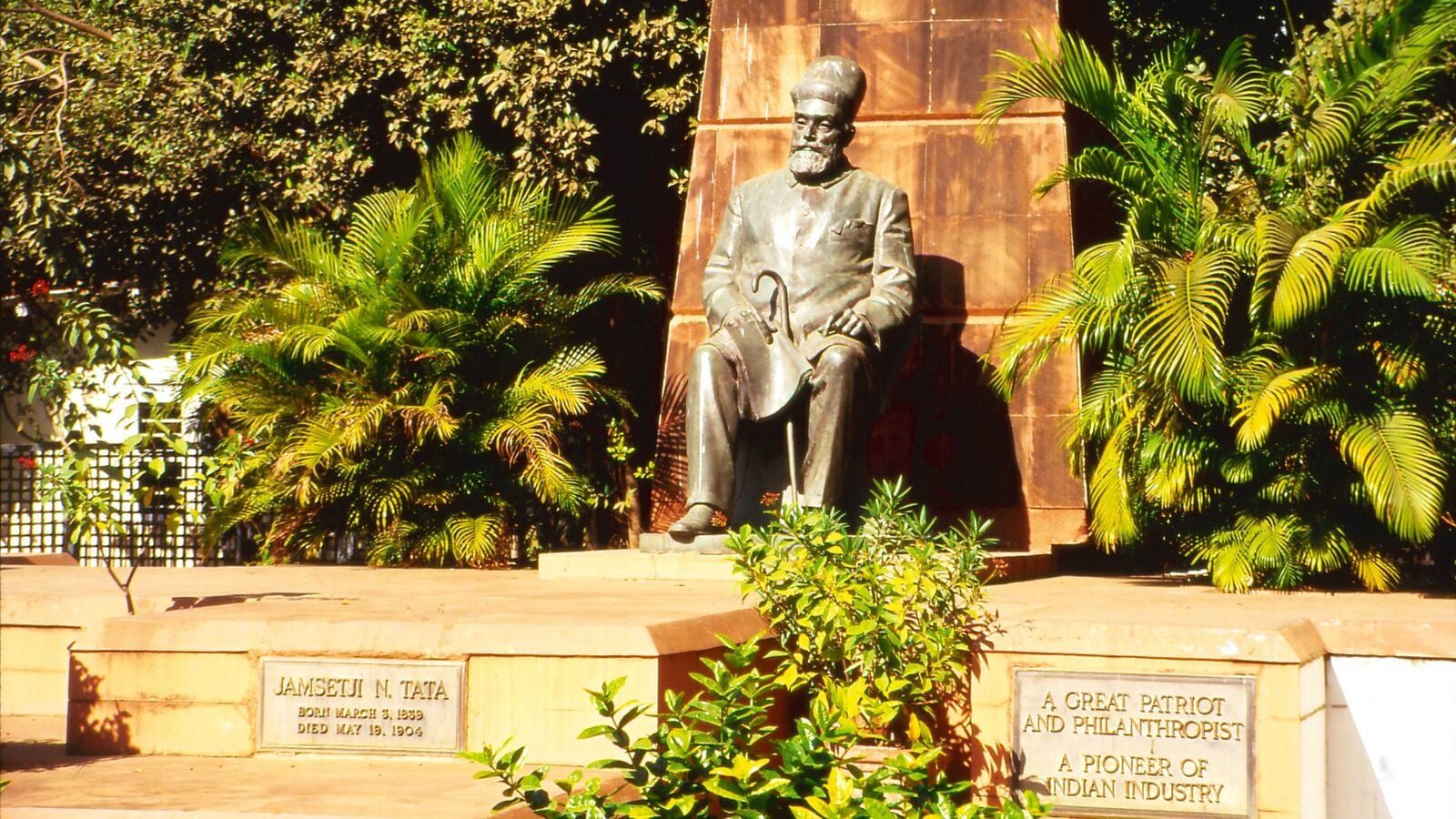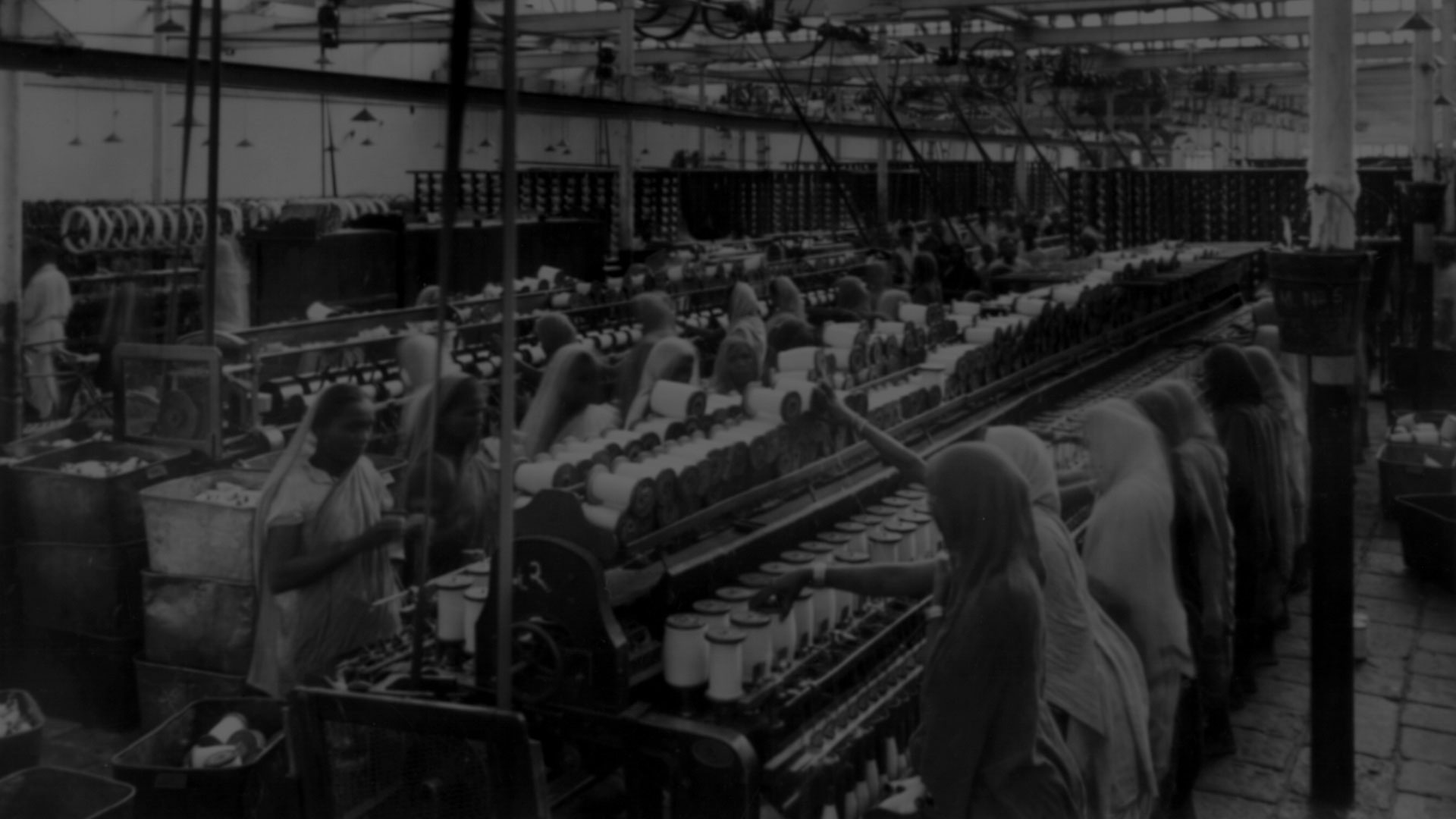Do you ever think about what truly makes a business last, not just for a few years, but for generations? It's almost like, what makes some companies stand tall when others falter? We see so many businesses come and go, yet a few names just stick around, becoming symbols of strength and good values. This kind of lasting impact, you know, it often comes from a deep well of wisdom, from people who saw things a little differently, who built with purpose.
For anyone looking to build something meaningful in the business world, looking back at figures like Jamsetji Tata can offer a lot. He was a pioneer, really, someone who laid down foundations for an entire industrial group that still thrives today, in 2024. His ideas about business, about how to treat people, and about serving the nation, these are still very much alive and well. It's pretty amazing, actually, how relevant his way of thinking remains.
So, if you're keen to understand what makes a business truly successful, beyond just the numbers, then exploring the jamsetji tata powerful learnings for corporate success is a really good idea. His approach wasn't just about making money; it was about creating something bigger, something that helped society. And that, in a way, is a lesson we could all use more of, especially now.
Table of Contents
- Jamsetji Tata: A Brief Life Story
- The Core of His Business Philosophy
- Building for the Future, Not Just Today
- Community and Social Responsibility
- Lessons for Today's Leaders
- Frequently Asked Questions
- Conclusion
Jamsetji Tata: A Brief Life Story
Jamsetji Nusserwanji Tata, born in 1839, was a true business pioneer in India. He came from a family of Parsi priests in Navsari, Gujarat. Even though his family had a religious background, he was drawn to the world of commerce. His father, Nusserwanji Tata, was the first businessman in the family, so, you know, Jamsetji followed in those footsteps, but really made them his own.
He started out in the trading business, which was pretty common back then. But he didn't just stop there. He had a much bigger vision for what India could be, especially in terms of industry. He wanted to see his country stand strong, producing its own steel, generating its own power, and offering world-class education. This kind of forward thinking, it was quite rare for his time, you see.
His business journey began with textiles, and he built successful mills. Yet, his real mark came from dreaming about things that seemed impossible for India at the time. He imagined a steel plant, a hydroelectric power project, and a research institution. These were huge, really ambitious plans that he worked tirelessly on, even if he didn't live to see all of them finished. His dedication to these big ideas is a big part of the jamsetji tata powerful learnings for corporate success.
Personal Details and Bio Data
| Detail | Information |
|---|---|
| Full Name | Jamsetji Nusserwanji Tata |
| Born | March 3, 1839 |
| Birthplace | Navsari, Gujarat, British India |
| Died | May 19, 1904 (aged 65) |
| Place of Death | Bad Nauheim, German Empire |
| Nationality | Indian (British India) |
| Occupation | Businessman, Industrialist, Philanthropist |
| Known For | Founding the Tata Group, pioneering Indian industry |
| Spouse | Hirabai Daboo |
| Children | Dorabji Tata, Ratanji Tata |
The Core of His Business Philosophy
Jamsetji Tata's way of doing business wasn't just about making money; it was about building something that would last and serve a bigger purpose. His philosophy was rooted in a few key ideas that, honestly, still hold true today for any corporate success. He believed in seeing far ahead, acting with honesty, and putting people first. These things, they really guided everything he did.
Visionary Thinking and Looking Ahead
One of the biggest jamsetji tata powerful learnings for corporate success is his amazing ability to look into the future. He didn't just react to what was happening; he imagined what could be. For instance, he saw India needing its own steel industry, even when others thought it was impossible. He also dreamed of a world-class hotel in Mumbai, the Taj Mahal Palace, when there wasn't one quite like it.
This kind of vision meant thinking beyond the immediate profit. He was willing to invest in projects that would take a long time to pay off, or even projects that he might not see finished in his lifetime. He understood that true progress sometimes means planting trees whose shade you might never sit under. This long-term view is pretty much a cornerstone for any lasting business.
He would often say, in a way, that true wealth comes from creating something of lasting value for the nation. This wasn't just talk; he backed it up with his actions. His plans for steel, power, and education were all about building a stronger, more independent India. That's a pretty powerful lesson for any business leader, don't you think?
Ethical Foundations and Trust
Another crucial part of his approach was an unshakeable commitment to ethics. He believed that business should be conducted with the highest moral standards. For him, honesty and integrity were not just good ideas; they were the very basis of doing business. He built trust, which is, you know, incredibly valuable for any company.
He made sure that his businesses operated fairly, treating everyone with respect. This meant fair dealings with suppliers, customers, and employees alike. This way of working built a reputation for the Tata name that has lasted for more than a century. People knew they could trust a Tata company, and that's a kind of asset money just can't buy. This emphasis on trust is a key jamsetji tata powerful learnings for corporate success.
This commitment to doing things the right way, even when it was harder or less profitable in the short run, set a very high standard. It showed that you could be successful and still be ethical. It's a lesson that, quite frankly, some businesses could still learn from today. Ethical leadership really does make a difference, it turns out.
Focus on People and Their Well-being
Jamsetji Tata had a very strong belief in taking care of his people. He was ahead of his time in offering welfare schemes for his workers. This included things like provident funds, accident compensation, and even medical benefits, long before such things became common or were required by law. He saw his employees as valuable assets, not just labor.
He believed that a happy and healthy workforce was a productive one. So, he invested in their well-being, providing good living conditions and opportunities for growth. This kind of care for employees created a very loyal workforce, which is, you know, incredibly important for any long-term business success. It's a pretty simple idea, really, but so often overlooked.
This human-centric approach is a truly significant jamsetji tata powerful learnings for corporate success. It teaches us that treating people well isn't just a nice thing to do; it's a smart business strategy. When your people feel valued, they give their best, and that benefits everyone. He showed that you could build a huge enterprise while still having a very human touch.
Building for the Future, Not Just Today
Jamsetji Tata's vision wasn't limited to what was possible in his own time. He had a profound sense of building for the generations that would follow. This forward-looking mindset is a powerful aspect of the jamsetji tata powerful learnings for corporate success. He understood that true progress means investing in things that yield benefits far down the road, not just quick returns.
Investing in Research and New Ideas
He was a big believer in the power of knowledge and new discoveries. He wanted India to have its own institutions for advanced learning and research. This led to his efforts to establish what is now the Indian Institute of Science in Bengaluru. He saw that scientific research was key to industrial and national progress, which was a very modern idea for his era.
He understood that staying still meant falling behind. So, he pushed for innovation and for bringing the best global practices to India. This meant sending people abroad to learn, and bringing experts to India to help build new industries. This commitment to learning and adapting is, you know, pretty much essential for any business hoping to stay relevant in a fast-changing world.
His focus on research and development wasn't just about specific products; it was about building a capacity for ongoing innovation. He wanted to create a system where new ideas could constantly emerge and be put into practice. This is, honestly, a very powerful lesson for corporate leaders today: always look for what's next, and invest in the means to get there.
Commitment to Quality and Excellence
For Jamsetji Tata, mediocrity was not an option. He insisted on the highest standards of quality in everything his businesses did. Whether it was the cotton from his mills or the services at his hotel, he wanted them to be world-class. He believed that if you were going to do something, you should do it really well, actually.
This pursuit of excellence meant paying attention to every detail and never settling for "good enough." This commitment built a reputation for quality that became synonymous with the Tata name. Customers knew they could expect the best. This focus on quality, you know, it builds customer loyalty and a strong brand over time, which is very important.
It's a pretty simple idea, but one that's sometimes forgotten in the rush for quick profits. The jamsetji tata powerful learnings for corporate success includes this deep commitment to making things the very best they can be. It shows that true success isn't just about volume; it's about the standard you uphold in everything you create.
Community and Social Responsibility
Jamsetji Tata's business philosophy was deeply intertwined with his sense of duty to society. He didn't see business as separate from the community; rather, he believed that a business had a responsibility to contribute to the well-being of the nation. This idea of social responsibility is a very significant jamsetji tata powerful learnings for corporate success.
Giving Back to Society
He was a pioneer in what we now call corporate social responsibility. He believed that the wealth created by industry should benefit the wider community. This wasn't just about charity; it was about building institutions and infrastructure that would uplift society as a whole. For example, the city of Jamshedpur, built around his steel plant, was planned with parks, schools, and hospitals for its residents.
He established trusts and endowments to support education, healthcare, and scientific research. These trusts continue to fund various social initiatives even today, which is quite remarkable. He understood that a business could be a powerful force for good, shaping society in positive ways. This kind of impact, you know, goes far beyond financial statements.
This commitment to giving back shows a very broad perspective on what success means. It's not just about personal gain but about collective prosperity. This is a pretty timeless lesson, honestly, for any leader looking to make a real difference. Learn more about on our site.
Long-Term Impact Over Short-Term Gains
His projects, like the steel plant and the power stations, were designed to provide foundational industries for India, not just quick profits. He was thinking about how these ventures would serve the nation for decades, even centuries. This long-term view, prioritizing lasting impact over immediate financial returns, is a very strong jamsetji tata powerful learnings for corporate success.
He understood that building something truly great takes time, patience, and a willingness to invest heavily without expecting instant gratification. This approach requires a different kind of courage and foresight, a willingness to play the long game. It's a lesson that, you know, is particularly relevant in today's world where there's often pressure for very quick results.
His legacy is a testament to the idea that businesses can be instruments of national development and social good. This perspective encourages leaders to think about their company's role in the broader world, not just within its own walls. It's about creating value that extends far beyond shareholders, really.
Lessons for Today's Leaders
The jamsetji tata powerful learnings for corporate success are just as relevant today as they were over a century ago. In a world that's always changing, his core principles offer a stable guide. Leaders today can learn a lot from his visionary outlook, his strong ethical stance, and his deep care for people and society. It's pretty much a blueprint for building something truly lasting.
Thinking big and looking far ahead, like he did, can help businesses adapt to new challenges and find new opportunities. Having a clear moral compass, too, builds trust with customers, employees, and the public, which is, you know, more important than ever. And putting people first, whether they are employees or the community, creates a stronger, more resilient organization.
His story shows that true corporate success isn't just about financial figures. It's about making a positive difference, building with integrity, and having a vision that serves more than just oneself. For anyone aiming for real, lasting achievement in business, these lessons from Jamsetji Tata are incredibly valuable, honestly. You can also link to this page for more insights.
Frequently Asked Questions
What were Jamsetji Tata's main contributions?
Jamsetji Tata's main contributions include founding the Tata Group, which grew into a huge global conglomerate. He pioneered industries in India, like steel production with Tata Steel and hydroelectric power with Tata Power. He also built the Taj Mahal Palace Hotel in Mumbai and established the Indian Institute of Science, which was, you know, pretty groundbreaking for its time.
How did Jamsetji Tata show ethical leadership?
He showed ethical leadership by always prioritizing honesty and fairness in business dealings. He believed in giving back to society and taking care of his employees, offering benefits like provident funds and medical aid long before they were common. He also ensured his businesses operated with a strong moral compass, building lasting trust with everyone involved, which is, you know, a very strong part of the jamsetji tata powerful learnings for corporate success.
What made Jamsetji Tata a visionary leader?
Jamsetji Tata was a visionary leader because he imagined and worked towards a future for India that seemed impossible to many. He foresaw the need for key industries like steel and power, and invested in them even though they were long-term projects. He also championed scientific research and higher education, seeing them as vital for national progress. His ability to see far ahead and act on those big dreams made him truly visionary. For more about his life, you could look up his biography on the Tata Central Archives website, it's pretty informative.
Conclusion
So, the jamsetji tata powerful learnings for corporate success really offer a timeless guide for anyone wanting to build a business that truly matters. His focus on looking ahead, acting with integrity, and caring for people shows a way of doing things that goes beyond just making money. It's about creating something that contributes to society, something that lasts for a very long time. His ideas, you know, are still very much alive and well, showing us that good values and big dreams can really go hand in hand for true success.



